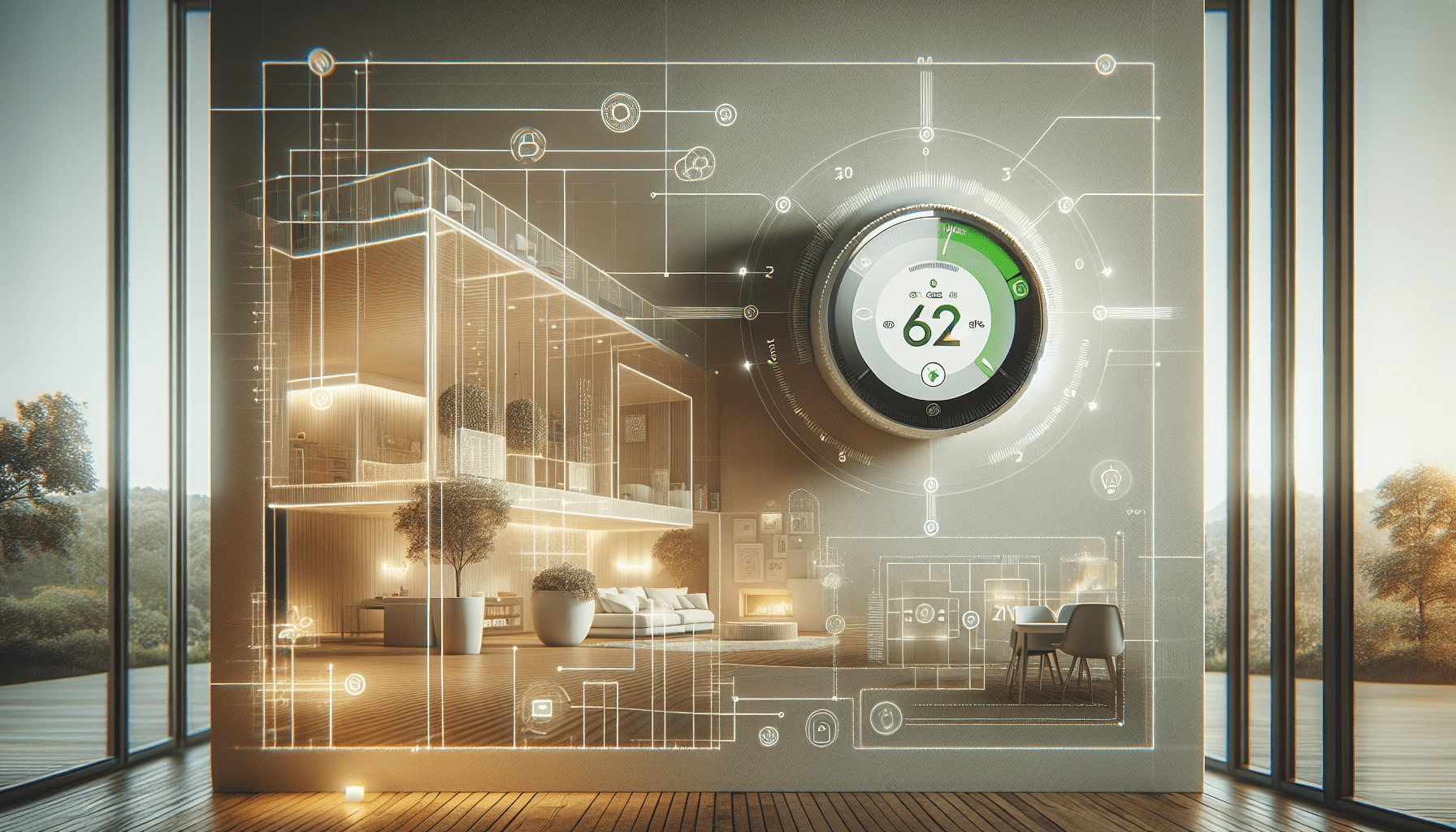How Can We Incorporate Smart Home Technology for Sustainability?
Are you curious about how to integrate smart home technology into our lives for a more sustainable future? Smart home technology isn’t just about convenience; it also plays a crucial role in our quest for environmental sustainability.

Understanding the Concept of Smart Home Technology
What is Smart Home Technology?
Smart home technology refers to devices and systems that automate, monitor, and manage our home environments through the Internet of Things (IoT). These devices range from smart thermostats to intelligent lighting systems and energy-efficient appliances. Essentially, smart home technology allows us to control our homes through apps on our smartphones or voice commands via virtual assistants.
The Importance of Sustainability
Sustainability is about meeting our present needs without compromising the ability of future generations to meet theirs. Incorporating smart home technology can significantly reduce our carbon footprint, conserve natural resources, and promote energy efficiency.
Energy Efficiency
Smart Thermostats
One of the simplest ways to make our homes more energy-efficient is by using smart thermostats. These devices learn our habits and adjust the temperature accordingly, ensuring our homes are comfortable without wasting energy.
Example:
| Brand | Key Features | Energy Savings |
|---|---|---|
| Nest Thermostat | Auto-scheduling, Remote control via app, Energy history | Up to 15% on cooling and 12% on heating bills |
| Ecobee | Room sensors, Alexa integration, Geofencing | Saves up to 23% annually on heating and cooling |
Smart Lighting
Switching to smart lighting can also lead to significant energy savings. Smart bulbs can be dimmed or turned off automatically when not in use, and some even change color based on our activities or the time of day.
Benefits:
- Reduces energy consumption by up to 80%.
- Lasts longer than traditional bulbs, reducing waste.
- Can be controlled remotely for added convenience.
Water Conservation
Smart Sprinkler Systems
Smart sprinkler systems use weather data and soil moisture levels to optimize water usage in our gardens. By avoiding unnecessary watering, we can conserve water and maintain our gardens more efficiently.
Example:
| Brand | Key Features | Water Savings |
|---|---|---|
| Rachio | Weather Intelligence, Soil sensors, App control | Up to 50% on outdoor water usage |
| RainMachine | Touchscreen, Weather forecast integration, EPA WaterSense certified | Reduces water usage by up to 80% |
Smart Water Monitors
Installing smart water monitors helps detect leaks and track water consumption in real-time. By identifying leaks early, we can prevent water waste and potentially save on repair costs.
Benefits:
- Early leak detection helps prevent water damage.
- Provides detailed insights into our water usage patterns.
- Can alert us through smartphones for immediate action.
Renewable Energy Integration
Solar Panels and Battery Storage
Incorporating solar panels with battery storage allows us to generate and store renewable energy, reducing reliance on the grid and lowering our carbon footprint. Smart home systems can optimize energy usage, ensuring that surplus energy is stored or used efficiently.
Benefits:
- Reduces electricity bills.
- Increases energy independence.
- Enhances home value.
Wind Turbines and Small-Scale Wind Power
While less common, small-scale wind turbines can also be a viable option for generating renewable energy at home. Integrating these with smart home systems allows for efficient energy management.
Considerations:
- Suitable for homes with enough wind exposure.
- Requires initial investment but offers long-term savings.

Smart Appliances
Energy-Efficient Appliances
Opting for energy-efficient smart appliances can significantly reduce our home’s energy consumption. These appliances are designed to use less electricity without compromising functionality.
Popular Options:
- Smart Refrigerators: Adjust cooling based on usage, some even provide inventory tracking.
- Smart Washers and Dryers: Optimize washing cycles based on load and fabric type.
- Smart Dishwashers: Choose the most efficient settings while ensuring cleanliness.
Smart Plugs
Smart plugs can turn any ordinary device into a smart device. By controlling when these devices are on or off, we can reduce phantom energy consumption, also known as vampire energy.
Example:
| Brand | Key Features | Use Cases |
|---|---|---|
| TP-Link Kasa | Voice control, Scheduling, Energy monitoring | Lamps, Coffee makers, Space heaters |
| Wemo Mini | Compact design, Alexa integration, Away mode | Fans, Crock-pots, TVs |
Home Automation Systems
Centralized Control Hubs
A centralized control hub, like Amazon Echo or Google Home, integrates various smart home devices, allowing us to manage them from a single interface. This consolidation simplifies control and optimizes energy usage.
Benefits:
- Enhances user experience by simplifying control.
- Can integrate with a variety of devices from different manufacturers.
- Enables automation of routine tasks for efficiency.
Smart Home Ecosystems
Creating a fully integrated smart home ecosystem maximizes our energy-saving potential. By connecting lighting, heating, cooling, and appliances, we can create scenarios and routines that automatically adjust to our needs.
Example Scenarios:
- Leaving Home: Automatically turns off lights, lowers thermostat, and adjusts security settings.
- Bedtime: Dims lights, turns off non-essential appliances, and sets the thermostat to a comfortable level.

Sustainable Practices and Smart Home Technology
Reducing Waste
Reducing waste is an essential aspect of sustainability. Smart home technology can assist by offering solutions such as smart composters and recycling systems that make managing waste easier and more efficient.
Innovative Products:
- Smart Composters: Accelerate composting process and reduce kitchen waste.
- Automated Recycling Systems: Sort and compact recyclables for easier disposal.
Smart Gardening
Smart gardening tools, such as plant sensors and robotic lawn mowers, can help us maintain beautiful gardens with minimal environmental impact. These tools ensure that our plants get the right amount of water and care, contributing to a greener household.
Examples:
| Brand | Key Features | Benefits |
|---|---|---|
| Parrot Flower Power | Real-time plant health data, App notifications | Ensures optimal plant care |
| Husqvarna Automower | GPS navigation, Weather timer, Anti-theft alarm | Energy-efficient and quiet operation |
Cost Considerations and ROI
Initial Investment
The initial cost of smart home technology can be a barrier for some. However, it’s essential to consider the long-term savings and environmental benefits that these technologies offer. Investing in energy-efficient solutions can lead to significant reductions in utility bills over time.
Return on Investment (ROI)
Calculating the ROI of smart home technology involves factoring in the cost savings from reduced energy and water usage. Many smart home products offer quick payback periods, making them financially viable in the long run.
Example Calculation:
- Smart Thermostat:
- Initial Cost: $250
- Annual Savings: $150/year
- Payback Period: ~1.7 years
- Solar Panels:
- Initial Cost: $15,000
- Annual Savings: $1,200/year
- Payback Period: ~12.5 years

Challenges and Solutions
Connectivity Issues
Reliable internet connectivity is crucial for smart home devices to function. In areas with poor internet service, solutions like mesh Wi-Fi systems can enhance connectivity throughout our homes.
Compatibility
With a plethora of smart home products on the market, compatibility can be an issue. Opting for devices that support common standards like Zigbee or Z-Wave can ensure seamless integration.
Privacy and Security
Smart home technology raises concerns about data privacy and security. Ensuring strong, unique passwords and regularly updating device firmware can protect our personal information.
Security Tips:
- Use two-factor authentication where possible.
- Keep router firmware up to date.
- Regularly review and understand privacy settings on our devices.
Future Trends in Smart Home Technology
AI and Machine Learning
Artificial Intelligence (AI) and Machine Learning (ML) will play a significant role in advancing smart home technology. These technologies can learn our behaviors and preferences, making our homes more responsive and efficient over time.
Enhanced Interoperability
Future developments are likely to focus on enhancing interoperability between different smart home systems. Efforts like the Matter protocol aim to create a unified standard, ensuring all devices work together seamlessly.
Greater Focus on Sustainability
As environmental consciousness grows, we can expect more smart home products designed specifically for sustainability. This includes advancements in renewable energy solutions, waste management technologies, and resource-efficient appliances.

Conclusion
Incorporating smart home technology for sustainability allows us to contribute positively to the environment while also enjoying the convenience and efficiency these innovations bring. By making informed choices and adopting technologies that align with our sustainability goals, we can create homes that are not only smart but also kind to our planet. Let’s embark on this journey towards a more sustainable future, one smart device at a time.



